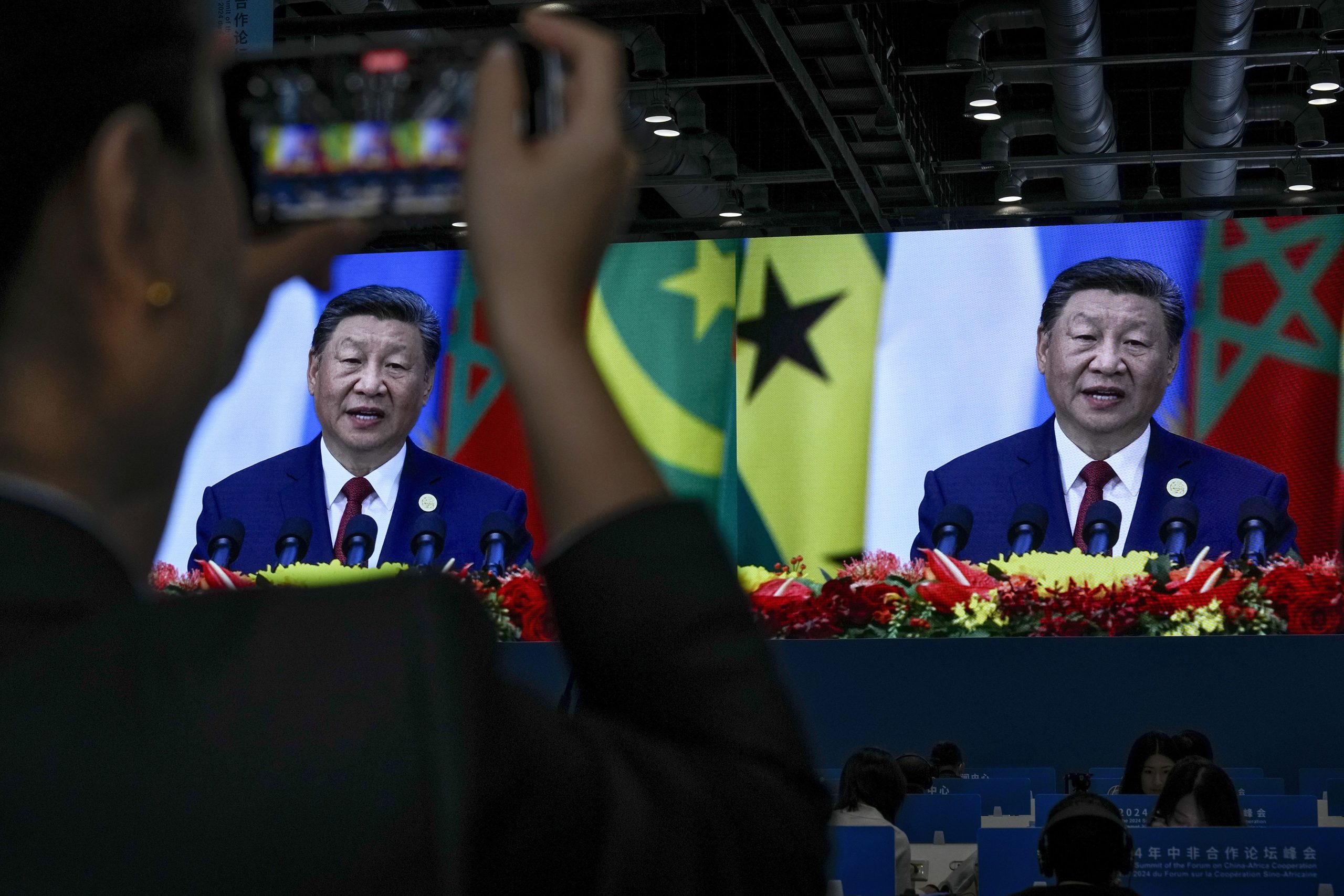American Commerce Department Employee Reportedly Barred from Leaving China
A Chinese American man working for the U.S. Commerce Department is currently unable to leave China after allegedly failing to disclose his government employment on his visa application. The individual, an employee of the Patent and Trademark Office, traveled to China to visit family and has become entangled in China’s controversial practice of imposing exit bans.
This practice, often viewed by Washington as a coercive tactic against individuals and businesses, has long been a source of friction in the relationship between the two nations. Several individuals familiar with the situation spoke on the condition of anonymity due to the sensitivity of the matter.
While the individual’s name has not been publicly released, the situation has been brought to the attention of senior U.S. diplomats, who have raised the issue with their Chinese counterparts.
A State Department spokesperson stated that “our highest priority is the safety and security of U.S. citizens overseas.” The department also confirmed that they are closely monitoring these cases and have expressed their concerns to Chinese authorities regarding the well-being of American citizens and the impact of these exit bans on bilateral relations. They have urged China to immediately allow affected U.S. citizens to return home.
The Scope of Exit Bans in China
Individuals subject to exit bans in China generally retain the freedom to move within the country and are permitted to meet with consular officials and journalists, although their activities are often heavily monitored. However, resolving these cases can sometimes take years.
Experts estimate that there are at least several dozen Americans, many of whom are of Chinese descent, currently under exit bans in China. The exact figure remains difficult to determine, as many cases are only brought to the attention of U.S. authorities through self-reporting. Many individuals only discover they are subject to a ban when attempting to leave the country, while others may choose not to report their cases for fear of hindering resolution efforts.
The State Department has criticized the lack of transparency in the imposition of these bans, noting that they are often enforced “without a clear and transparent process for resolution.”
John Kamm, chairman and founder of the Dui Hua Foundation, estimates that there are at least 30 active cases of Americans facing exit bans, with the actual number potentially reaching as high as 50. He noted that the number of cases appears to be on the rise, with as many as two new cases being reported each month, often involving local disputes targeting businesspeople.
Concerns and Reactions
The fact that the individual involved in this particular case is a U.S. government employee, even though he was reportedly not traveling on official business, adds a layer of complexity and concern. This situation is considered highly unusual.
Representative John Moolenaar, Chairman of the House Select Committee on the Chinese Communist Party, expressed grave concern, characterizing the incident as a potential case of “CCP hostage diplomacy.” He emphasized that the freedom of all Americans must remain a top priority.
A spokesperson for the Chinese Embassy in Washington stated that they were unaware of the case. They affirmed that China welcomes foreign citizens, including those from the United States, and guarantees their safety and legitimate rights and interests, including freedom of entry and exit, in accordance with the law. They also emphasized that foreign citizens in China are expected to respect and abide by Chinese laws.
Other Recent Cases
This incident follows a report of a Wells Fargo banker based in the U.S. being blocked from leaving China. Chenyue Mao, a Shanghai-born managing director at Wells Fargo, was reportedly subjected to an exit ban after entering China in recent weeks. The reason for her travel remains unclear. Following Mao’s exit ban, Wells Fargo reportedly suspended all travel to China.
The Nature of Exit Bans
Unlike formal detentions, exit bans require a lower threshold for implementation by Chinese authorities. Local courts can issue them in civil or commercial disputes, even without police involvement. China’s broadly written national security law has also been used to detain individuals or place them under exit bans for actions that would be considered legal in other countries, such as gathering information for business purposes.
Diplomatic Efforts and Challenges
Despite ongoing tensions between the U.S. and China, diplomats from both countries have expressed cautious optimism regarding a potential meeting between President Biden and President Xi Jinping.
While the two countries have engaged in prisoner swaps in the past, these deals typically do not address cases involving exit bans, as those affected are not officially considered “wrongfully detained” by the State Department because they are not held in custody.
Another complicating factor is China’s non-recognition of dual citizenship. This means that Chinese Americans are considered Chinese nationals, regardless of their U.S. passport. This can put Chinese Americans under additional pressure, as they often have family members in China, which could be used as leverage by Chinese authorities.
Maya Wang, associate China director at Human Rights Watch, pointed out that the Chinese government might consider someone a “traitor,” even if they were born in the U.S.
Kamm argued that the arbitrary enforcement of exit bans, particularly against children and relatives of those under scrutiny, should meet the definition of wrongful detention. He highlighted the case of a 7-year-old American boy and his mother who have been under an exit ban since August, when the boy’s father, a New York artist, was detained over artwork that Chinese authorities deemed to have “defamed the honor” of former Chinese leaders.
Stephen Biegun, a former deputy secretary of state, noted that while China has the right to reject visa applications without explanation, “to hold captive inside China people for issues of a visa application infraction or unrelated business disputes is going to set back efforts to ease travel between the two countries.”

